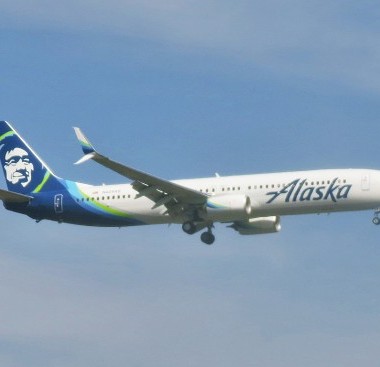Malaysia reviews airline license terms after startup’s woes
Malaysia will review conditions for granting licenses to new airlines after financial troubles forced a low-cost startup carrier to abruptly suspend its services.
Conditions need to be more stringent and additional background checks should be done to ensure the “competency and financial strength” of companies applying for an air service license, the country’s Transport Minister Anthony Loke said in an interview Thursday, without going into further detail.
Subang, Selangor-based MYAirline suspended operations just 10 months after it started flying, prompting authorities to halt its license while also initiating a money-laundering investigation against individuals involved with the airline.
The Business Times reported Monday that MYAirline no longer has leases on its 10 Airbus SE A320 planes.
MYAirline is the second Malaysian airline startup to run into trouble within months of beginning operations. In 2016, Rayani Air, a full-service carrier, lasted less than four months following technical issues, a pilot strike and a restructuring. Malaysian authorities permanently revoked its license later that year.
The minister, however, said there needs to be a balanced approach so as to not stifle competition.
“The process has to be strengthened but not to the point where we immediately close our gate,” Loke said. “Then you end up creating a ringfence for existing players, that no others will come in.”
Loke also said that financial sustainability is a pressing issue for airport operators as Malaysia looks to attract investment from the private sector to make airports more commercially viable. Not all of the 39 airports that Malaysia’s main airport operator, Malaysia Airports Holdings Bhd., operates are commercially viable, with some requiring state funding, Loke said.
Malaysia Airports is currently working to revamp the country’s main terminal at the 25-year-old Kuala Lumpur International Airport as it seeks to turn the aerodrome into a hub, rather than a “feeder airport,” via strategic tie-ups and code-sharing agreements with regional airlines, the minister said.
Similar Stories

Lufthansa Cargo and Maersk launch cooperation to support decarbonization of airfreight
View ArticlePort Authority of New York and New Jersey airports see spookily spectacular surge in October
Port of New York and New Jersey surpasses 700,000 TEUs for eighth consecutive month
View Article
airBaltic Cargo partners with cargo.one to accelerate and enhance its digital sales
View Article
Chapman Freeborn agrees partnership with Portuguese multimodal logistics specialist
View Article
Cathay is ready for the commissioning of the three-runway system at Hong Kong International Airport
View ArticleUnited Airlines Holdings Inc. upgraded To ‘BB’; outlook stable
• United Airlines Holdings Inc. is on track to generate credit measures in line with our previous upside rating threshold this year, and we expect improvement in 2025. • The…
View ArticleGet the most up-to-date trending news!
SubscribeIndustry updates and weekly newsletter direct to your inbox!





